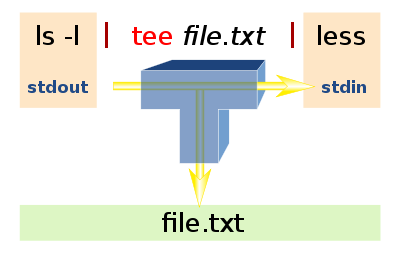
Redirect Output To Dev Null
| Special device files |
|---|
In some operating systems, the null device is a device file that discards all data written to it but reports that the write operation succeeded. This device is called /dev/null on Unix and Unix-like systems, NUL: or NUL on CP/M and DOS (internally DEVNUL), nul on newer Windows systems[1] (internally DeviceNull on Windows NT), NIL: on Amiga operating systems,[2] and NL: on OpenVMS.[3] In Windows Powershell, the equivalent is $null.[4] It provides no data to any process that reads from it, yielding EOF immediately.[5] In IBM DOS/360, OS/360 (MFT, MVT), OS/390 and z/OS operating systems, such files would be assigned in JCL to DD DUMMY.
To discard standard output completely on Linux, redirect the standard output to /dev/null. Redirecting to /dev/null causes data to be completely discarded and erased. $ cat file /dev/null. Note: redirecting to /dev/null does not erase the content of the file but it only discards the content of the standard output. I have a command I am running produces a ton of output, I want to silence the output without writing to a file. I have used the following to send all output to a file, but again I don't want any file output: command out.txt 2&1 I have used command /dev/null on my CentOS box before, but I can't find a similar thing for windows.
In programmer jargon, especially Unix jargon, it may also be called the bit bucket[6] or black hole.
History[edit]
According to the Berkeley UNIX man page, Version 4 Unix, which AT&T released in 1973, included a null device.[7][8]
Usage[edit]
The null device is typically used for disposing of unwanted output streams of a process, or as a convenient empty file for input streams. This is usually done by redirection.
The /dev/null device is a special file, not a directory, so one cannot move a whole file or directory into it with the Unix mv command.
References in computer culture[edit]
This entity is a common inspiration for technical jargon expressions and metaphors by Unix programmers, e.g. 'please send complaints to /dev/null', 'my mail got archived in /dev/null', and 'redirect to /dev/null'—being jocular ways of saying, respectively: 'don't bother sending complaints', 'my mail was deleted', and 'go away'. The iPhone Dev Team commonly uses the phrase 'send donations to /dev/null', meaning they do not accept donations.[9] The fictitious person name 'Dave (or Devin) Null' is sometimes similarly used (e.g., 'send complaints to Dave Null').[10] In 1996, Dev Null was an animated virtual reality character created by Leo Laporte for MSNBC's computer and technology TV series The Site. Dev/null is also the name of a vampire hacker in the computer game Vampire: The Masquerade – Redemption. A 2002 advertisement for the Titanium PowerBook G4 reads The Titanium Powerbook G4 Sends other UNIX boxes to /dev/null.[11]
The null device is also a favorite subject of technical jokes,[12] such as warning users that the system's /dev/null is already 98% full. The April Fool's, 1995 issue of the German magazine c't reported on an enhanced /dev/nullchip that would efficiently dispose of the incoming data by converting it to a flicker on an internal glowing LED.
See also[edit]
References[edit]
- ^'Redirecting Error Messages from Command Prompt: STDERR/STDOUT'. support.microsoft.com. Retrieved 2020-03-06.
- ^'A Beginner's Guide to Amiga E - Linked Lists'. cshandley.co.uk. Retrieved 2020-03-06.
- ^'OpenVMS Programming Concepts Manual'. h30266.www3.hpe.com. Retrieved 2020-03-06.
- ^SteveL-MSFT. 'about_Automatic_Variables - PowerShell'. docs.microsoft.com. Retrieved 2020-03-06.
- ^'Single Unix Specification Section 10.1: Directory Structure and Files'. The Open Group. Retrieved 2012-11-29.
- ^'bit bucket'. Jargon File. Retrieved 2013-12-27.
- ^'null(4)'. The NetBSD Project.
- ^'sh(1) manual from version 4 Unix'.
- ^'Dev-Team Blog - Donations to /dev/null'. 2015-09-07. Archived from the original on 2015-09-07. Retrieved 2018-11-15.
- ^Goodman, Danny (2004). Spam wars : our last best chance to defeat spammers, scammers, and hackers. New York: SelectBooks. p. 170. ISBN9781590790632. OCLC1036874851.
- ^'Image: unixad.jpg, (1094 × 720 px)'. Archived from the original on 2013-03-26. Retrieved 2015-09-02.
- ^'The FreeBSD Funnies'. Freebsd.org. Retrieved 2012-11-28.

Comments are closed.